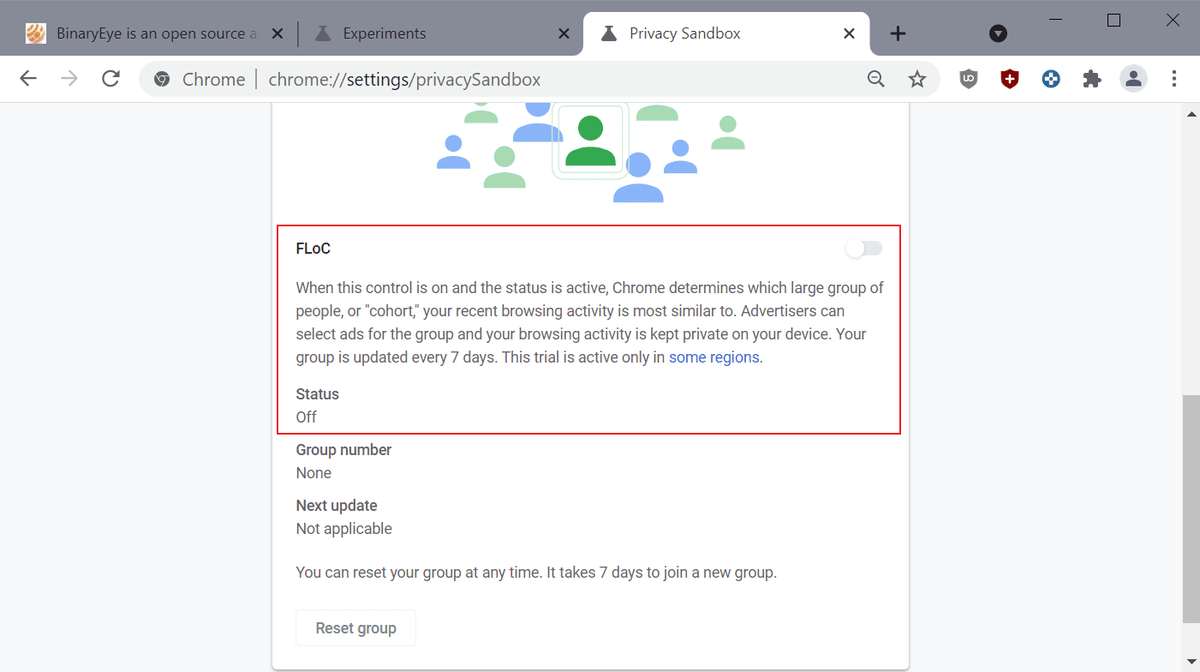
Image with FLoC disabled (via ghacks)
Cookies are not good for our privacy. For this reason they force them to notify us that they are using them and companies like Mozilla or those that develop other web browsers have declared war on them for a long time. Google depends on our information, or more specifically on that which makes it learn what interests us, so it had a "great" idea: it would replace them with flock, but, although everything would be less annoying, The remedy is worse than the disease.
Google's new proposal should not be noticed, that is, we would not even realize that it is there, but would collect even more information about us. Chrome has already activated the system for some users, and it has done so without the possibility of leaving the program (opt out), which is why there are users who have been looking for alternatives such as Brave. Well, it seems that, like Facebook with WhatsApp, which will not limit functions if the new terms are not accepted for fear that we will abandon the platform, Google will back down, although with a function that will be hidden.
Next option will allow us to block the FLoC of Google Chrome
Just like read in ghacks, the latest Chrome Canary build has included a function to block FLoC. Until now, for this we could block third-party cookies, but this can be a problem because there are some that are necessary for a web page to function properly. Chromium Canary 93.0.4528.0 has included a new "flag" to control FLoC separately. What we will have to do will be the following:
- We put this in the URL bar: chrome: // flags / # privacy-sandbox-settings-2.
- We put it in "Enabled".
- We restart Google Chrome.
Once the browser is activated and restarted, a setting will appear which did not appear before, although it might not as Google has not enabled the option for all users. To know if it is active and deactivate it, now we will have to do the following:
- We put this in the URL bar: chrome: // settings / privacySandbox.
- If enabled, FLoC can be disabled on the page.
Keep in mind that we are talking about the Canary version of Chrome, which is like a preliminary version less mature than the beta that we can compare with Firefox's Nighty, so the company reserves the right to backtrack. But it is likely that it will not do it simply because those who are unaware of the existence of FLoC will leave it active and those who may be angry about its use, who know that it exists, will have the possibility to deactivate it and continue using Google's proposal. I would without hesitation, but I am a happy Vivaldi user.
Well, if you are a happy Vivaldi user, you are a great delusional, even Firefox spies on you and Brave I don't even tell you. The only browser that doesn't really spy on you is palemoon.